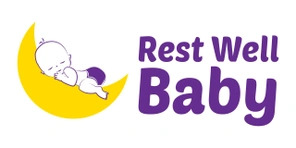Blog

What is the best nap environment for babies & toddlers??
Creating the Perfect Naptime Haven for Your Baby or Toddler:
Napping on the go in a car, stroller, or other portable space can be a lifesaver for busy parents. However, it's important to understand that these naps may not always be as restful as those taken in a quiet, dark, and familiar sleep environment. The constant stimulation of new sights and sounds can disrupt a toddler's sleep cycle, leading to shorter and less satisfying naps.
The Importance of a Home-Based Nap
For little ones who struggle to nap on the go, it's often beneficial to structure your day around home naps. This allows your child to sleep in a familiar and peaceful setting, promoting better sleep quality and duration. By prioritizing home naps whenever possible, you can help your child establish a consistent sleep routine.
A Flexible Approach
If your child is able to nap well both at home and on the go without compromising their nighttime sleep, you may have more flexibility in your nap schedule. However, it's still advisable to incorporate at least a few home naps each week to ensure your child remains accustomed to sleeping in their crib. This can help prevent sleep regressions and maintain a healthy sleep pattern.
Tips for Napping on the Go
If you do need to nap on the go, here are some tips to help your child sleep more comfortably:
Create a calming environment: Use a portable blackout shade in the car or cover the stroller with the canopy to block out light. Play white noise or a calming lullaby to drown out external sounds.
Choose a quiet location: Try to find a quiet area or a secluded spot to nap.
Keep it consistent: Try to maintain a consistent nap schedule, even when you're on the go.
Limit stimulation: Avoid overstimulating your child before naptime.
Be patient: It may take some time for your child to adjust to napping on the go.
By understanding the challenges and benefits of napping on the go and finding a balance that works for your family, you can help your child get the rest they need to thrive.
Yours in sleep,
Tracie / Rest Well Baby
www.restwellbaby.com
Tracie Kesatie is a Certified Gentle Sleep Coach dedicated to helping families with little ones 0-10 years of age achieve a restful night's sleep.
Disclaimer: This article provides general information and is not intended as medical advice. Always consult with your pediatrician for any concerns about your child's health.
Blog





